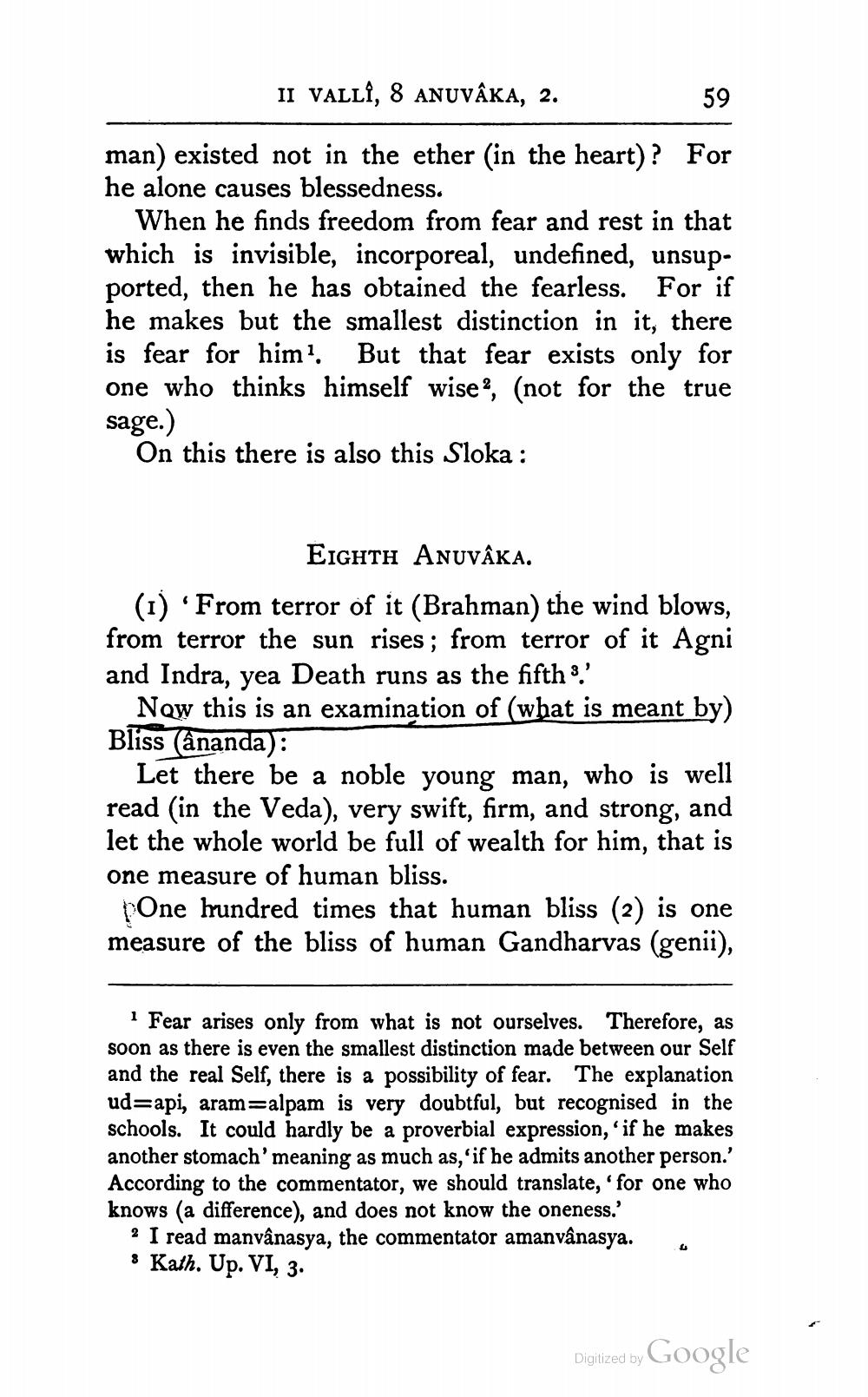________________
II VALLİ, 8 ANUVÂKA, 2.
59
man) existed not in the ether (in the heart)? For he alone causes blessedness.
When he finds freedom from fear and rest in that which is invisible, incorporeal, undefined, unsupported, then he has obtained the fearless. For if he makes but the smallest distinction in it, there is fear for him? But that fear exists only for one who thinks himself wise?, (not for the true sage.)
On this there is also this Sloka :
EIGHTH ANUVÂKA. (1) 'From terror of it (Brahman) the wind blows, from terror the sun rises; from terror of it Agni and Indra, yea Death runs as the fifth 3.'
Now this is an examination of (what is meant by) Bliss (ânanda):
Let there be a noble young man, who is well read (in the Veda), very swift, firm, and strong, and let the whole world be full of wealth for him, that is one measure of human bliss.
pOne hundred times that human bliss (2) is one measure of the bliss of human Gandharvas (genii),
Fear arises only from what is not ourselves. Therefore, as soon as there is even the smallest distinction made between our Self and the real Self, there is a possibility of fear. The explanation ud=api, aram=alpam is very doubtful, but recognised in the schools. It could hardly be a proverbial expression, if he makes another stomach'meaning as much as, 'if he admits another person.' According to the commentator, we should translate, for one who knows (a difference), and does not know the oneness.'
? I read manvânasya, the commentator amanvânasya. 8 Kath. Up. VI, 3.
Digitized by Google




